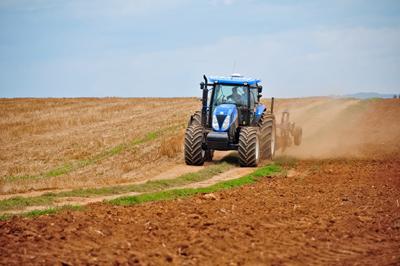
Scientists from the University of Southampton have contributed to a major new study which shows that adding crushed rock dust to farmland could draw down up to two billion tonnes of carbon dioxide (CO2) from the air per year and help meet key global climate targets.
The technique, known as enhanced rock weathering, involves spreading finely crushed basalt, a natural volcanic rock, on fields to boost the soil’s ability to extract CO2 from the air. The study is published in the latest issue of Nature.
Researchers and from Southampton’s School of Ocean and Earth Science provided expertise on calculating rates of rock weathering that was fed into a global process model developed by the University of Sheffield’s Leverhulme Centre for Climate Change Mitigation. The model demonstrates the potential of enhanced rock weathering for carbon drawdown by major economies, and identifies the costs and engineering challenges of scaling up the approach to help meet ambitious global CO2 removal targets.
Professor James, a partner in the study and a member of the Leverhulme Centre for Climate Change Mitigation, said: “This study shows that spreading rock dust on agricultural land has great potential for carbon dioxide drawdown, especially in the big emitting nations – China, the US, India. Meeting the demand for rock dust to undertake large-scale CO2 drawdown might be achieved by using stockpiles of silicate rock dust left over from the mining industry and, as part of another project, funded by the UK’s Natural Environment Research Council, the University of Southampton is developing global inventories of the most suitable materials.”
She added: “The critical next step is to show that the technique works in real life. In support of this, Southampton, working with other partners in the Leverhulme Centre for Climate Change Mitigation, is carrying out large-scale field experiments applying rock dust to agricultural sites in the US, Malaysia and the UK. Early results show increased CO2 removal from basalt-amended croplands as we expected, as well as other co-benefits including improvements including increased resistance to disease and improved quality of soil drainage water.”
The paper is published in Nature.





